
Functional Business Analyst
A Functional Business Analyst is a professional who plays a critical role in business analysis within an organization. They focus on understanding and documenting the functional requirements of a project or business process.
Fundamental Aspects of Functional Business Analyst:
1. Business Understanding: BAs need to know how the company works and what it wants to achieve.
2. Process Improvement: BAs find ways to make the company’s work smoother and more efficient.
3.Tech Knowledge: BAs understand a bit about technology to talk to tech people.
4. Project Management: They manage tasks and schedules to get things done on time.
5. Quality Assurance: BAs help make sure things work properly by testing and checking.
6. Change Management: They help the company adapt to changes and new ways of working.
7. Stakeholder Management: BAs work with different people in the company and need to manage those relationships.
8. Industry Knowledge: Depending on the company’s industry, BAs know specific things about that industry.
9. Data Analysis: They use data to make smart decisions and find patterns.
Important Roles And Responsibilities Of Functional Business Analyst:
Here are some important roles and responsibilities of a Functional Business Analyst:
1. Requirement Prioritization: Decide which business needs are most important and should be addressed first.
2. Solution Design: Help plan and create solutions that solve business problems or needs.
3. User Acceptance Testing (UAT): Make sure that the solution works as expected by testing it with users before it’s fully implemented.
4. Risk Assessment: Identify potential problems or challenges in a project and figure out how to handle them
5. Project Management: Help organize and manage projects, ensuring they stay on track and within budget.
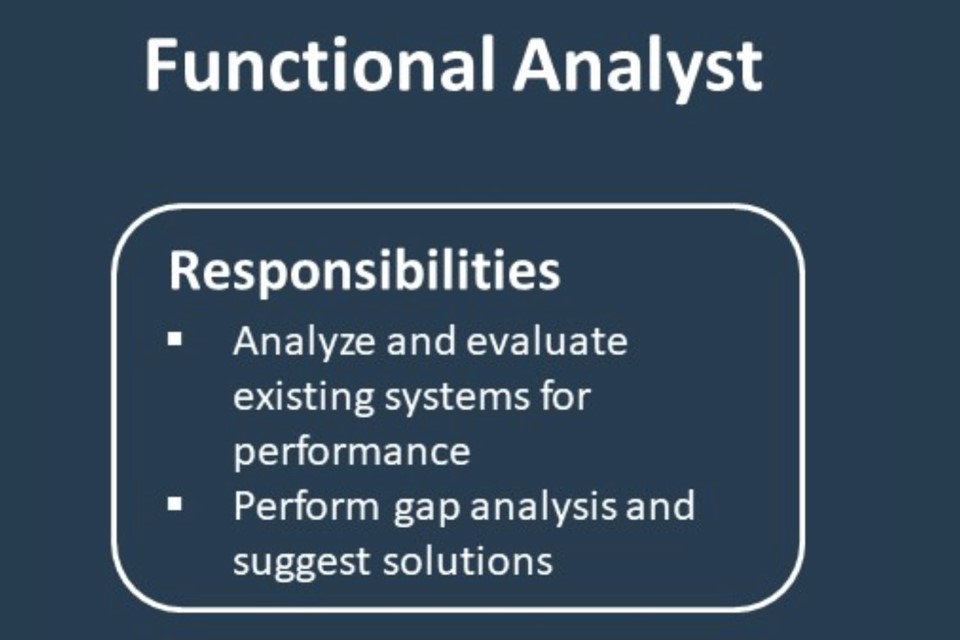
6. Technical Competence: Understand basic technical concepts to communicate effectively with tech teams.
7. Vendor Management: If needed, oversee relationships with outside companies providing services or software.
8. Domain Knowledge: Learn about the specific industry and business area to provide better insights and recommendations.
Types Of Functional Business Analyst:
Functional Business Analysts (BAs) can be categorized into various types based on their specific focus, skills, and areas of expertise within the realm of business analysis. Here are some common types of Functional Business Analysts:
1.Process Analyst: These BAs make work easier by finding ways to do things more efficiently.
2.Systems Analyst: They help make computer systems and software work better for the business.
3.Data Analyst: Data BAs help understand and use information to make decisions.
4.HR Analyst: HR BAs make sure the people in a company are happy and working well.
5.Financial Analyst: They work with money, budgets, and financial stuff.
6.Healthcare Analyst: These BAs focus on making healthcare better and more efficient.
7.Retail Analyst: They help stores and shops run smoothly.
8.Marketing Analyst: These BAs help sell products and understand what customers want.
9.Quality Analyst: They make sure things are good quality and work correctly.
10.Customer Experience Analyst: They make sure customers have a great time using a company’s products or services.
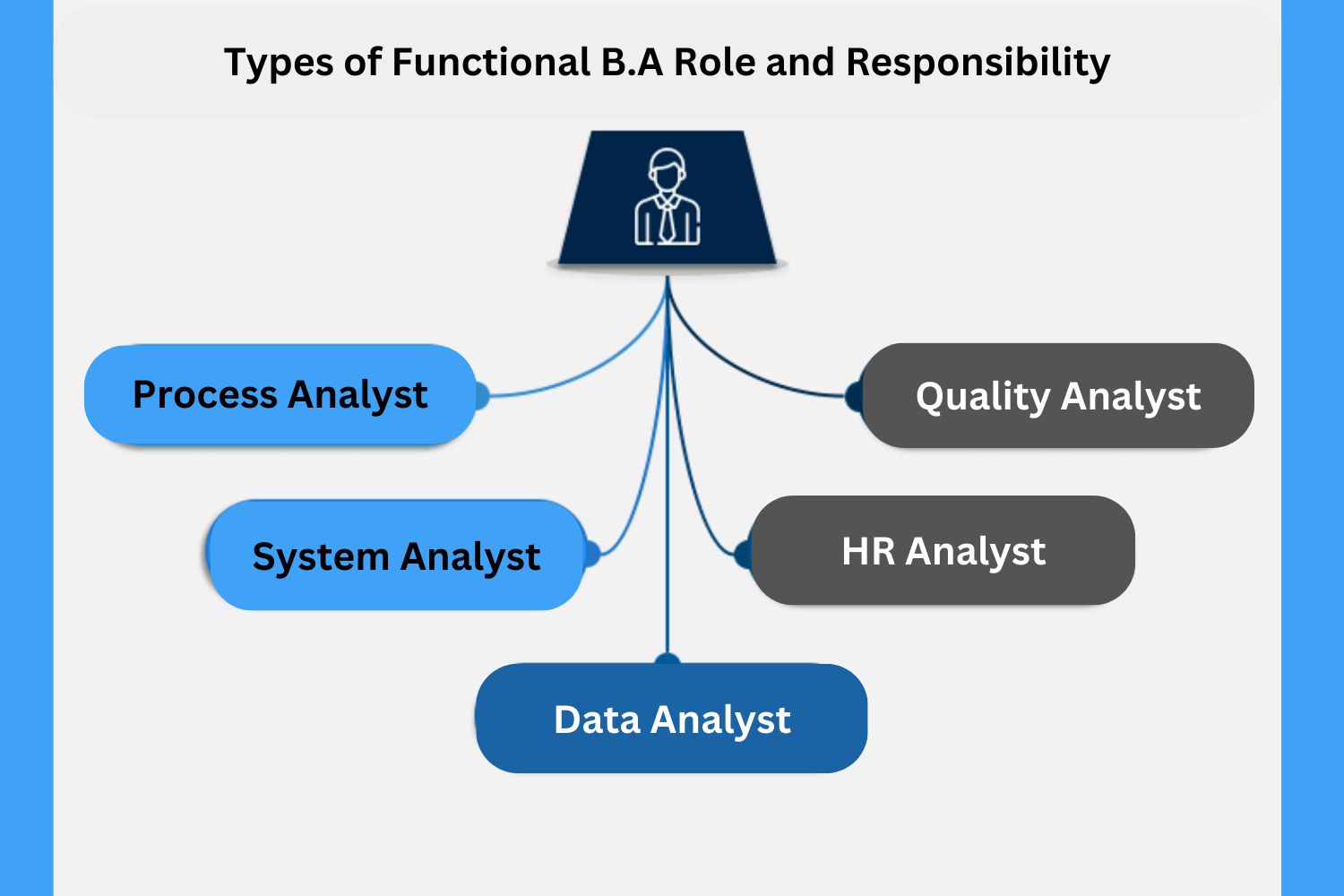
Advantages of Functional Business Analyst:
1. Efficiency: They make business processes work better and save time.
2. Cost Savings: They help reduce unnecessary expenses.
3. Better Decisions: They provide information for smarter choices.
4. Clear Communication: They ensure everyone understands what’s needed.
5. Reduced Risks: They spot problems early and prevent issues.
6. Happier Users: They help make customers and employees happier.
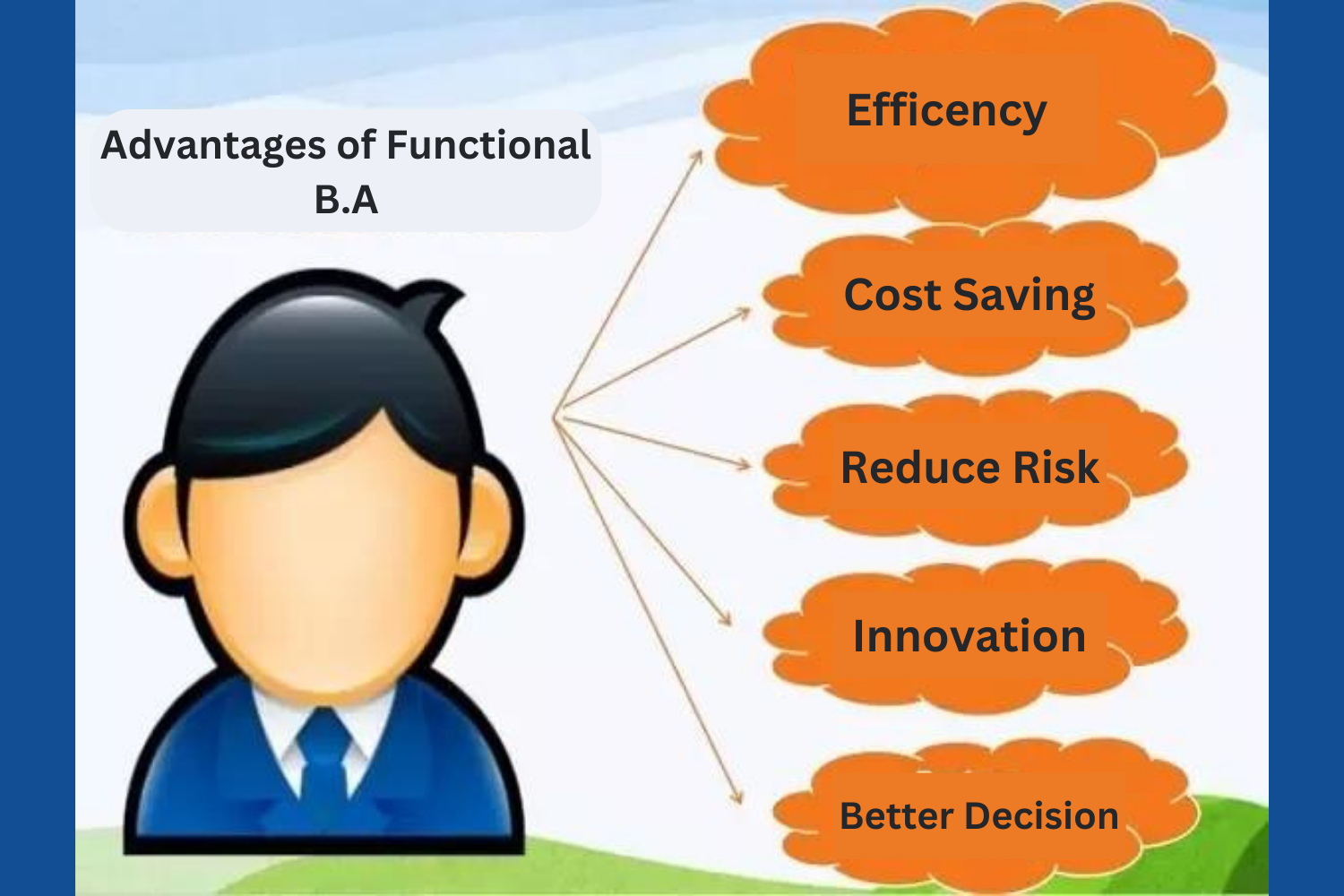
7. Project Success: They increase the chances of projects succeeding.
8. Innovation: They come up with new ideas for improvement.
9. Competitive Edge: They help organizations stay ahead of the competition.
Scope of Functional Business Analyst:
Understanding Needs: BAs figure out what a business or organization needs to do its job better.
Problem Solving: They find and solve issues in processes and systems.
Communication: BAs talk to different people in a company and help them understand each other.
Documentation: They write things down to remember what’s been learned and what needs to be done.
Using Data: BAs use data to make smart decisions and recommend improvements.
Helping Projects: They assist in managing projects and changes within a company.
Continuous Improvement: BAs find ways to make things better and more efficient over time.
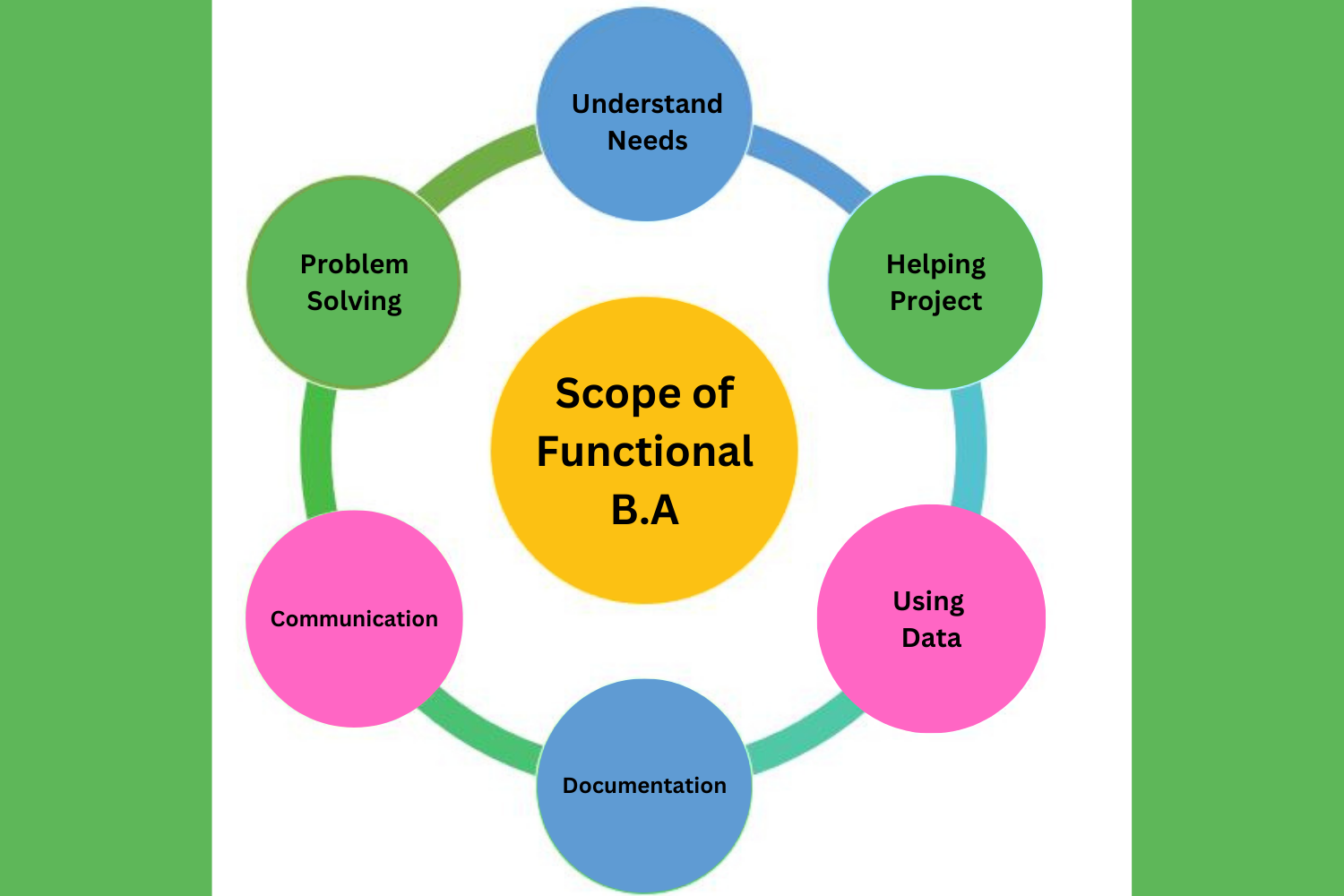
Job Opportunities Of Functional Business Analyst:
1. Business Analyst
2. Systems Analyst
3. Data Analyst
4. Product Owner
5. Project Manager
6. Quality Assurance Analyst
7. Process Improvement Analyst
8. Compliance Analyst
9. Customer Experience Analyst
10. Business Intelligence Analyst
11. Sales Operations Analyst
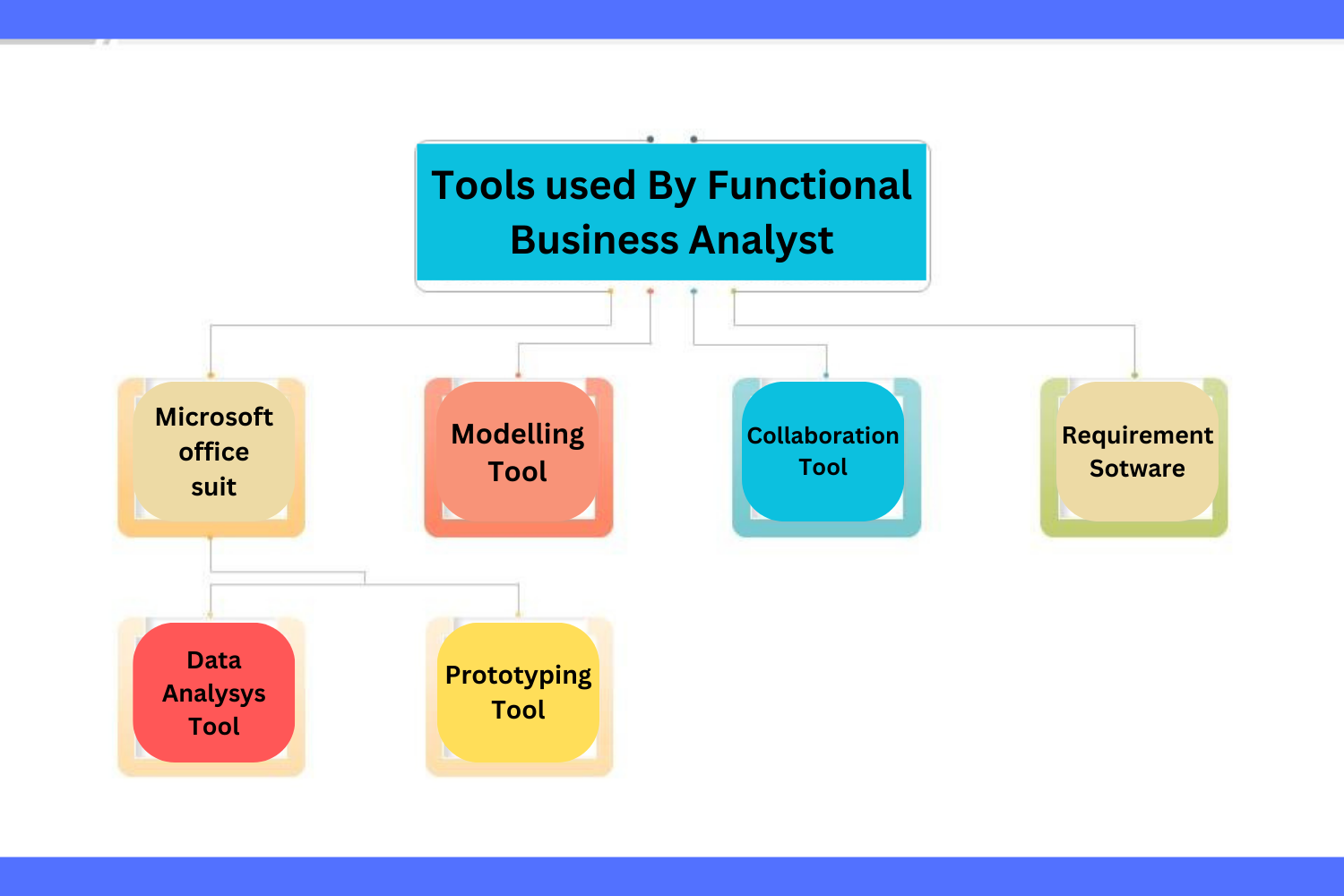
Tools used by Functional Business Analyst:
1. Microsoft Office Suite
2. Diagramming and Modeling Tools
3. Collaboration and Communication Tools
4. Requirements Management Software
5. Data Analysis Tools
6. Requirements Analysis and Traceability Tools
7. Prototyping and Wireframing Tools
Skills Of Functional Business Analyst:
1. Analytical Skills
2. Communication Skills
3. Critical Thinking
4. Business Acumen
5. Adaptability
6. Presentation Skills
7. Facilitation Skills
8. Negotiation
Salary Functional Business Analyst:
Functional Analyst salary in India ranges between ₹13LPA-35LPA Skills
Course Highlights/ Details:
1. Suited for students, fresher’s, professionals, and corporate employees
2. Live online classes
3. 4-month program
4. Certificate of completion
5. Decision Oriented Program of Analysis
6. Live Classes by highly experienced faculties
7. Hands-on experience with real-life case studies.

Conclusion
In simple terms, Functional Business Analysts are crucial for helping businesses understand what they need, find solutions, and ensure technology and processes meet those needs. They use various skills to analyze, document, and communicate effectively. Their role is vital in making businesses work better and achieve their goals.

